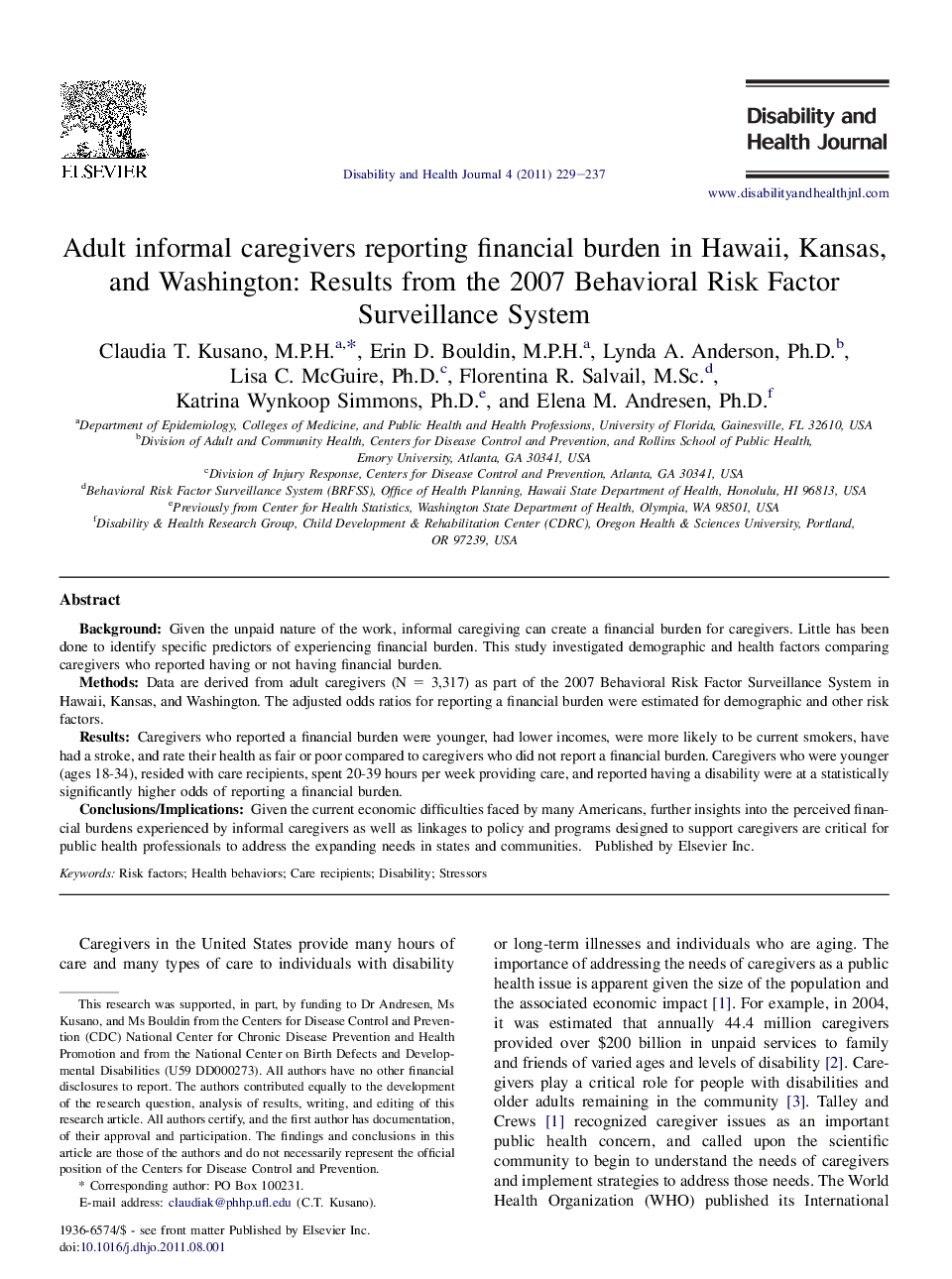| Article ID | Journal | Published Year | Pages | File Type |
|---|---|---|---|---|
| 4197528 | Disability and Health Journal | 2011 | 9 Pages |
BackgroundGiven the unpaid nature of the work, informal caregiving can create a financial burden for caregivers. Little has been done to identify specific predictors of experiencing financial burden. This study investigated demographic and health factors comparing caregivers who reported having or not having financial burden.MethodsData are derived from adult caregivers (N = 3,317) as part of the 2007 Behavioral Risk Factor Surveillance System in Hawaii, Kansas, and Washington. The adjusted odds ratios for reporting a financial burden were estimated for demographic and other risk factors.ResultsCaregivers who reported a financial burden were younger, had lower incomes, were more likely to be current smokers, have had a stroke, and rate their health as fair or poor compared to caregivers who did not report a financial burden. Caregivers who were younger (ages 18-34), resided with care recipients, spent 20-39 hours per week providing care, and reported having a disability were at a statistically significantly higher odds of reporting a financial burden.Conclusions/ImplicationsGiven the current economic difficulties faced by many Americans, further insights into the perceived financial burdens experienced by informal caregivers as well as linkages to policy and programs designed to support caregivers are critical for public health professionals to address the expanding needs in states and communities.
